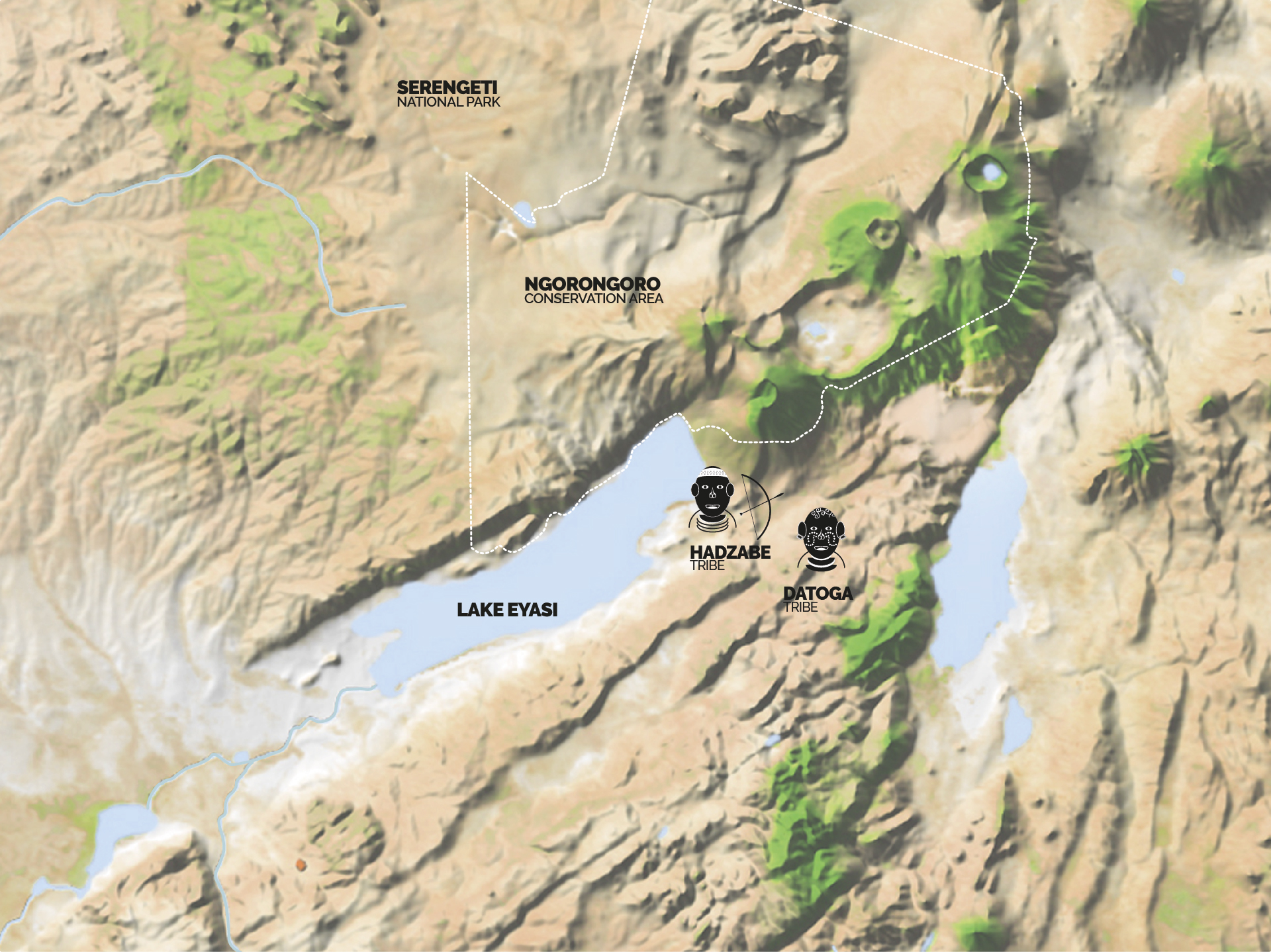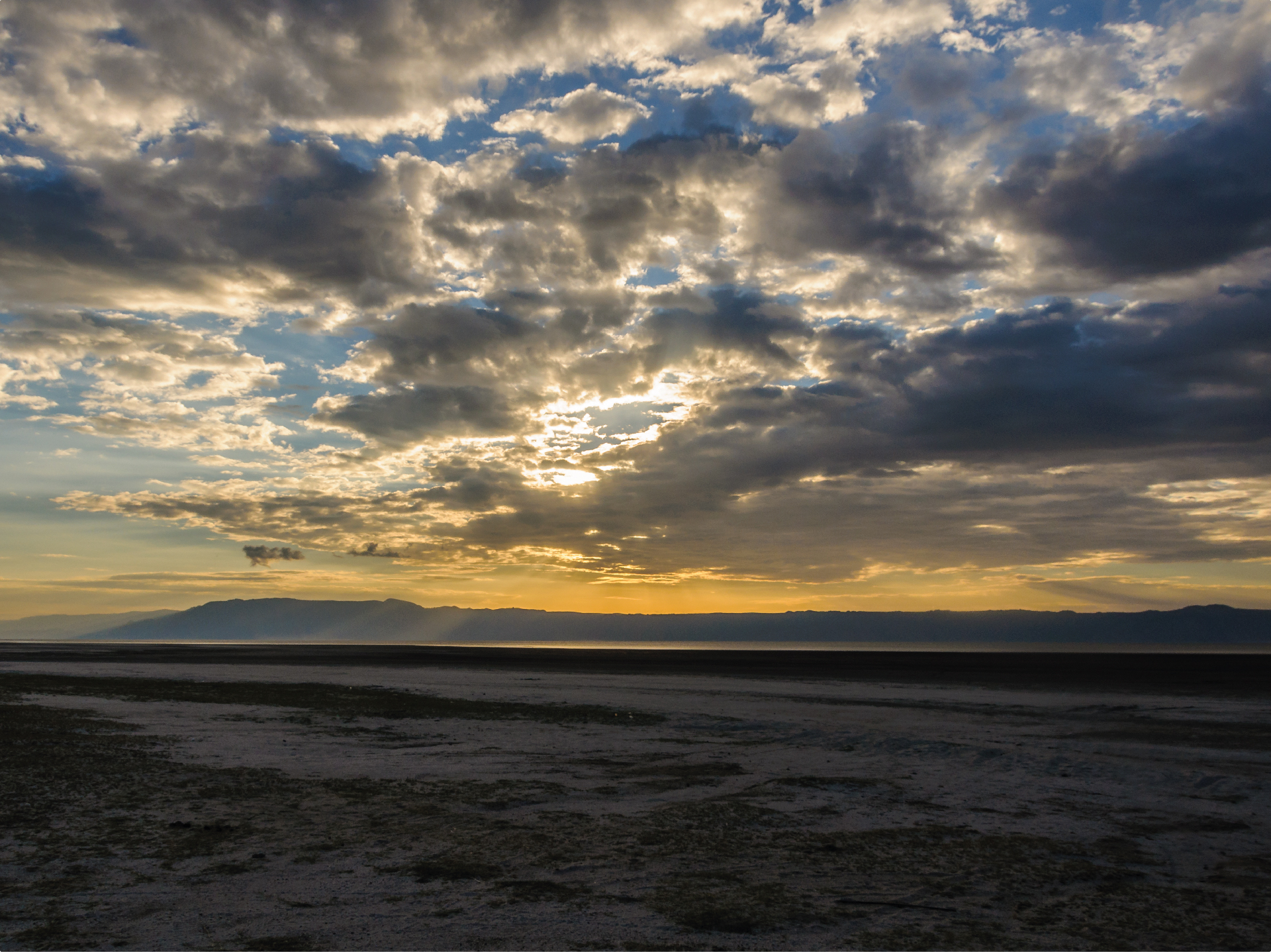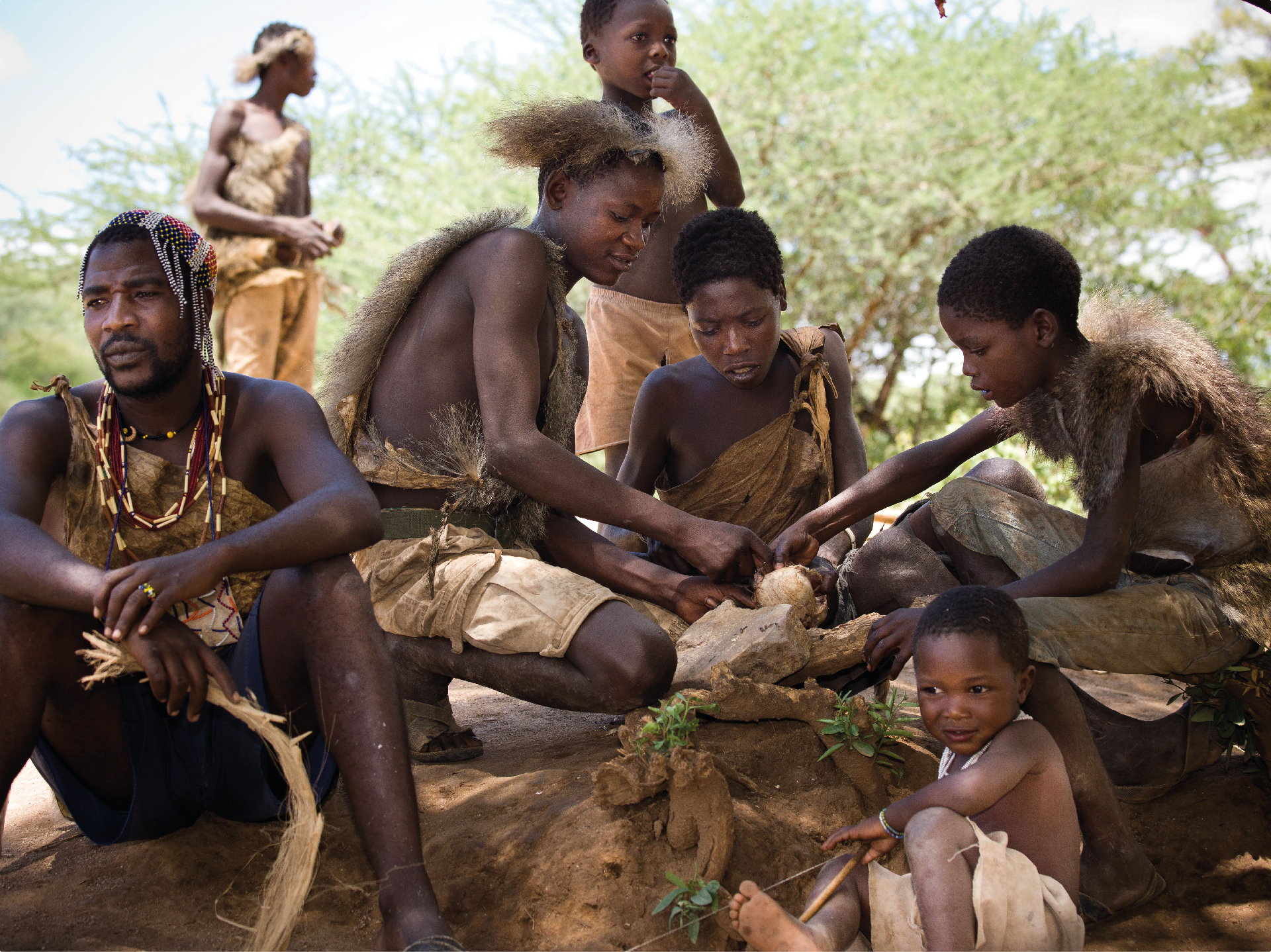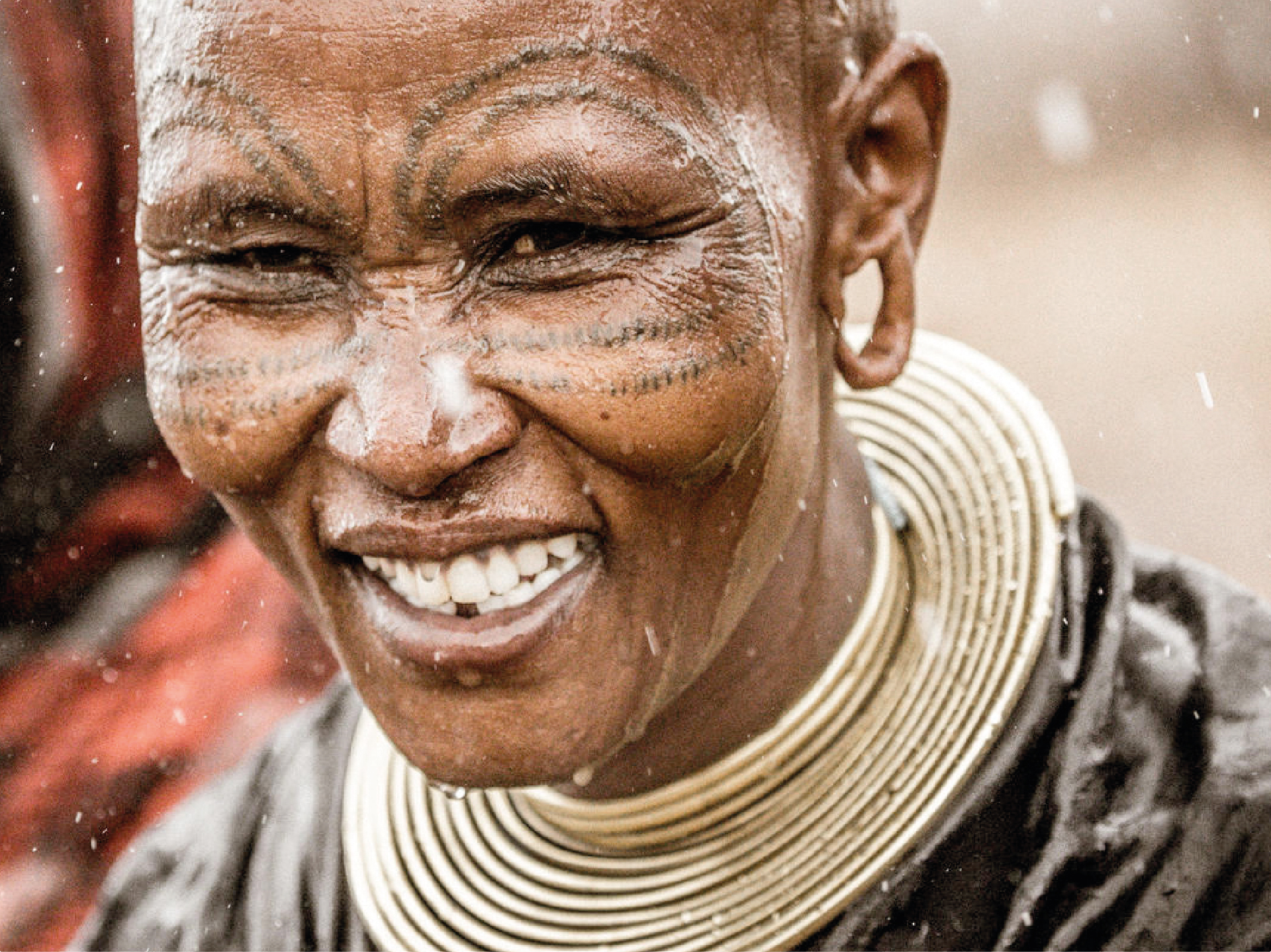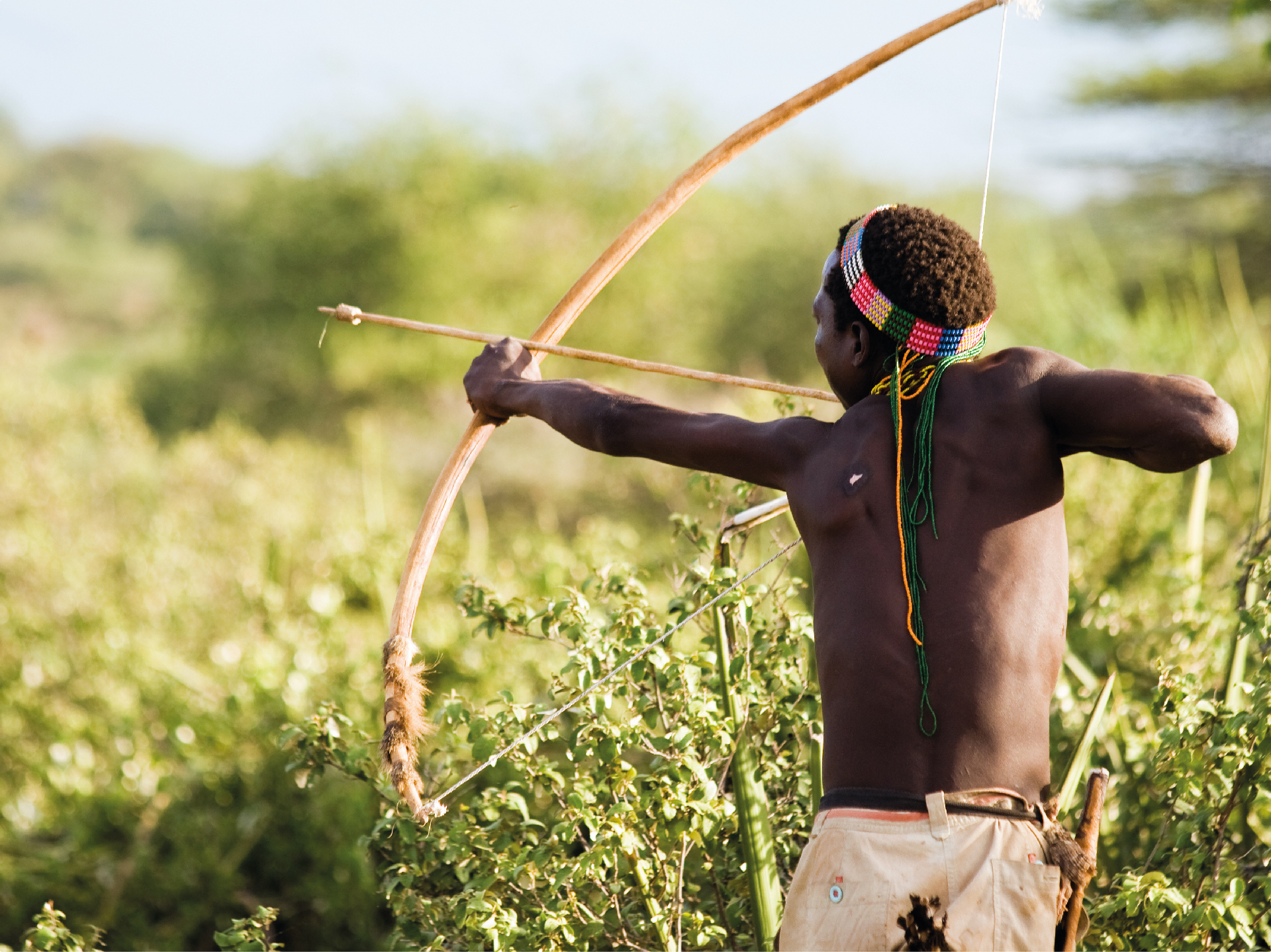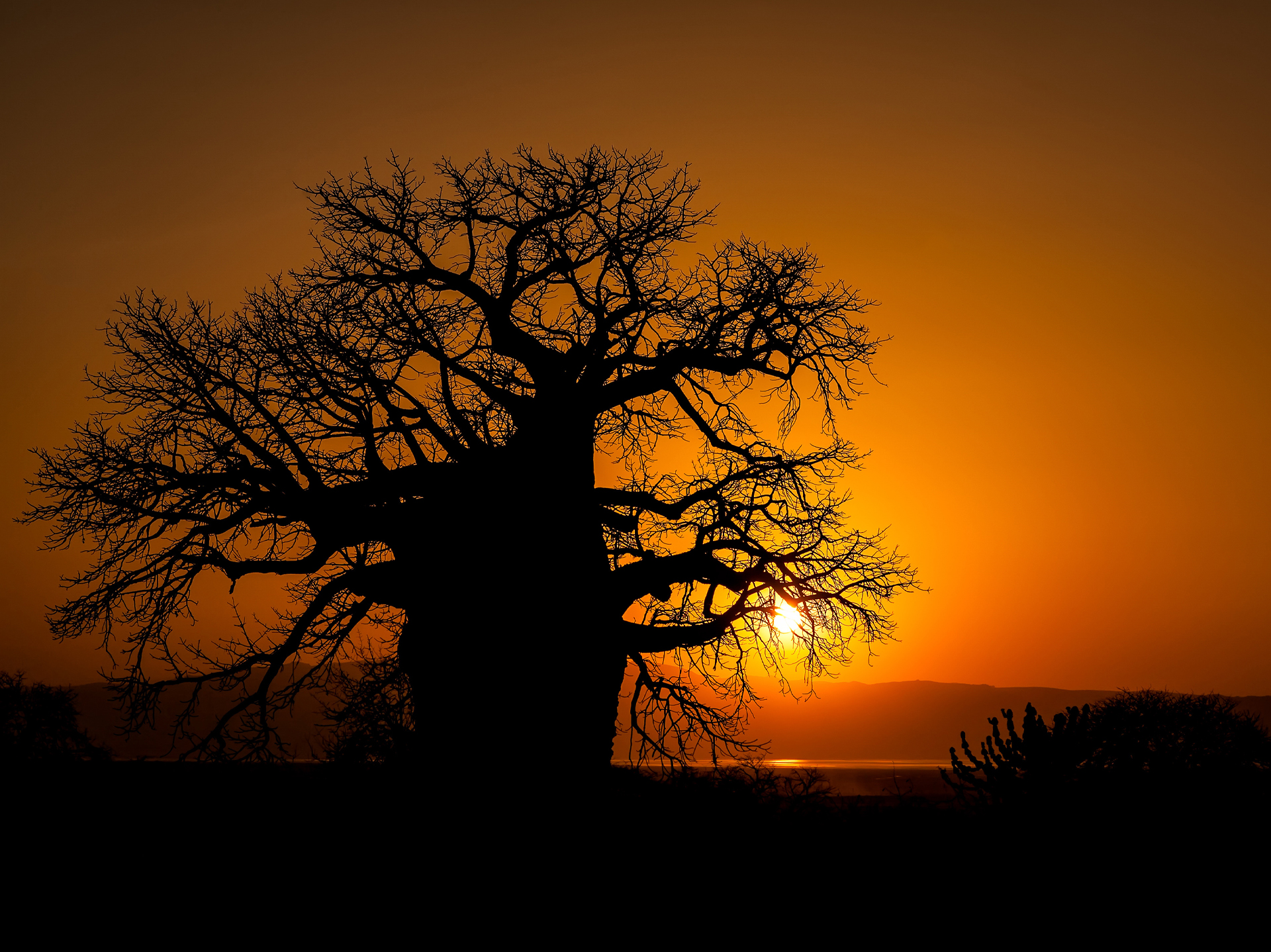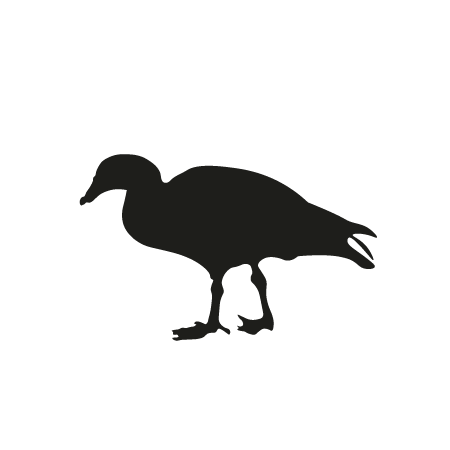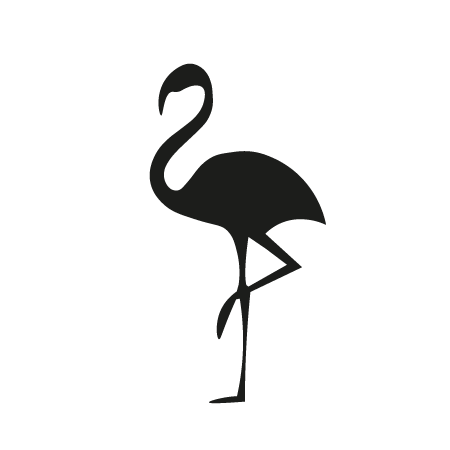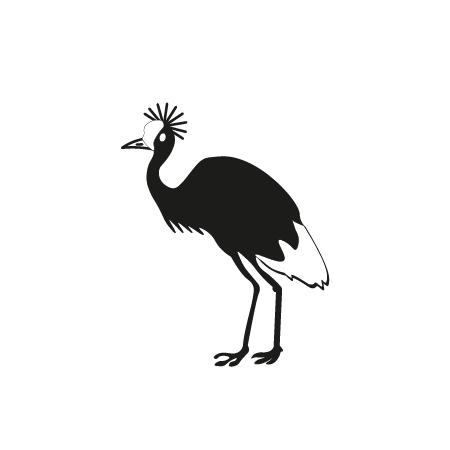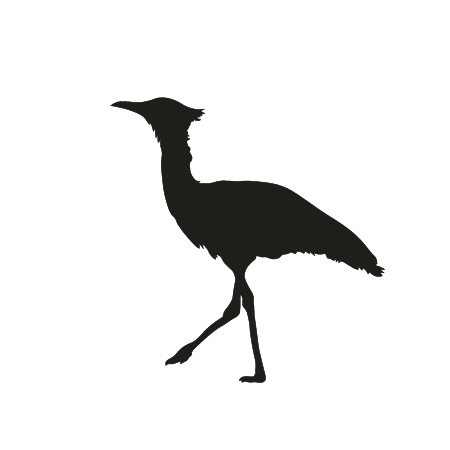Lake Eyasi, also known as Lake Njarasa, is an endorexic, seasonal, shallow salt lake. It lies about 75 km south-west of the Ngorongoro Conservation Area and 100 km south of the Serengeti National Park.
The climate is almost always characterised by very high temperatures because the lake is situated in the middle of the Great Rift Valley, the oldest rift in the world. It is estimated that this opened over 65 million years ago, shortly after the extinction of the dinosaurs.
Quite different from the surrounding areas of the Serengeti and Ngorongoro, the landscape has an almost tropical feel, thanks to the palm trees that line the lake and are home to birds such as the Fischer's Lovebird, a brightly coloured parrot. Majestic umbrella acacias, sandpaper bushes and some wonderful specimens of baobabs complete this particular habitat.
Depending on the rainfall pattern, the lake changes its size and presents itself with different peculiarities. During the dry season, it shrinks to a sun-baked puddle, creating the best conditions for observing wildlife forced to share the little remaining water. During the rainy season, however, its capacity increases, attracting hippos eager to cool off in its brackish waters.
Lake Eyasi, however, does not attract large wildlife as seen in neighbouring parks and protected areas, but it is a dream for all birdwatchers because it attracts large numbers of birds of all species, sizes and colours. Among the multitude of birds one can see flamingos, grey-headed gulls, large white pelicans, African Spoonbills, avocets and yellow-billed storks. Some small ethnic groups such as the Hadzabe and the Datoga live in this region.
Here is an idea of a safari itinerary to interact with them.
HADZABE Tribe
The Hadzabe are a Bushman tribe so old that National Geographic calls them 'the closest living relatives of the humans who first left Africa to migrate to the rest of the world'.
Peaceful in nature, this people, now reduced to less than a thousand individuals, represents the last example of the true hunter-gatherers of East Africa. They live in small nomadic villages and do not know agriculture, writing or any form of political organisation. The women are dedicated to searching for herbs and medicinal plants and gathering wild fruits and tubers, while the men hunt using bows with poison-tipped arrows.
The Hadzabe speak a click language, made up of clicking sounds (produced by placing the tongue against the palate in certain positions), each of which has its own semantic significance.
DATOGA Tribe
The Datoga are a people of Nilotic origin, also known by the Swahili word Mang'ati, which was attributed to them by the Maasai and whose meaning is 'respected enemy'.
They are thought to have settled in the Lake Eyasi area around 3.000 years ago from southern Sudan and the highlands of western Ethiopia. The Datoga are shepherds and excellent blacksmiths. Casting recycled iron, they make arrowheads and spears, as well as bracelets and other ornaments. Although they are known to rear goats, donkeys, sheep and chickens, cattle are their most important domestic animals. Datoga women love jewellery made of copper, iron and beads and are easily recognised by the characteristic decorative tattoos on the skin of their faces and shoulders.
This area is particularly suitable for exploring on foot and one- to half-day hikes are recommended. It is also possible to hunt with the Hadzabe or visit other tribes.
